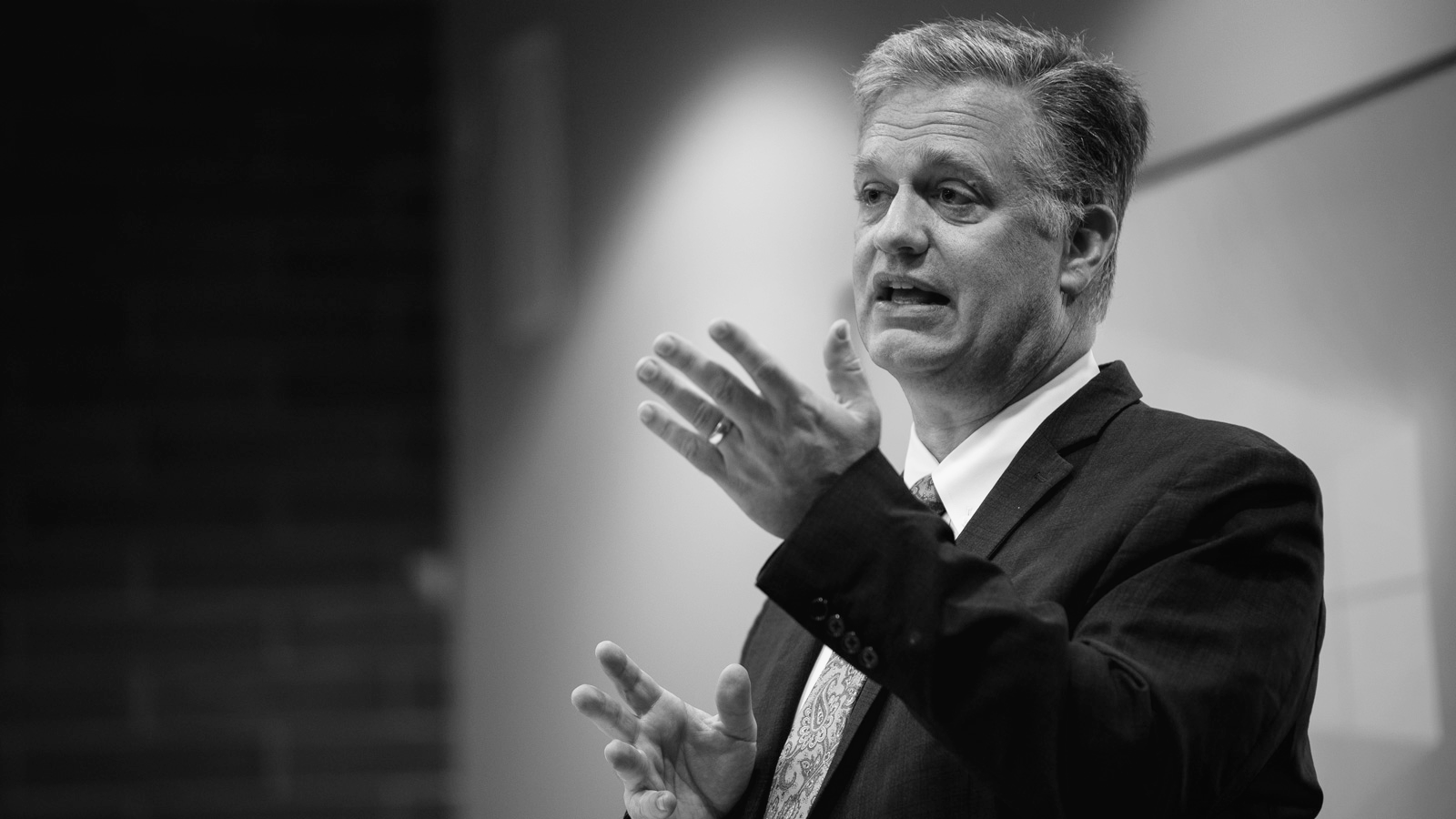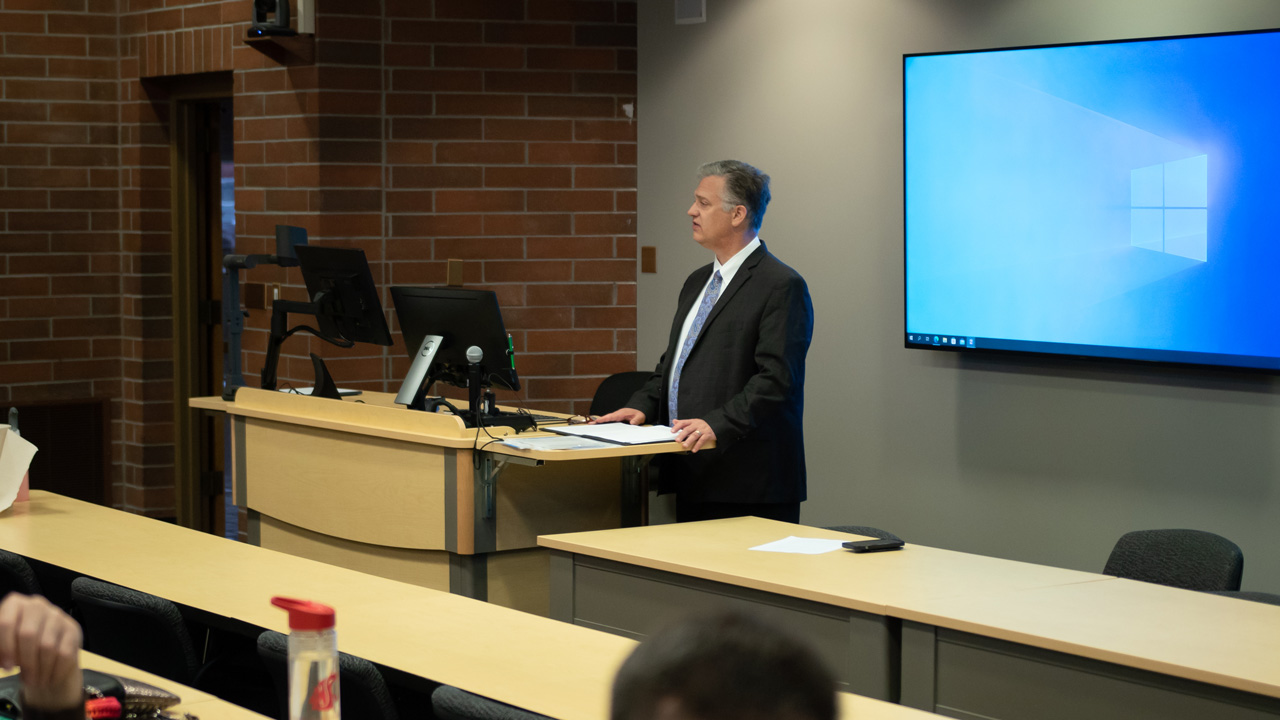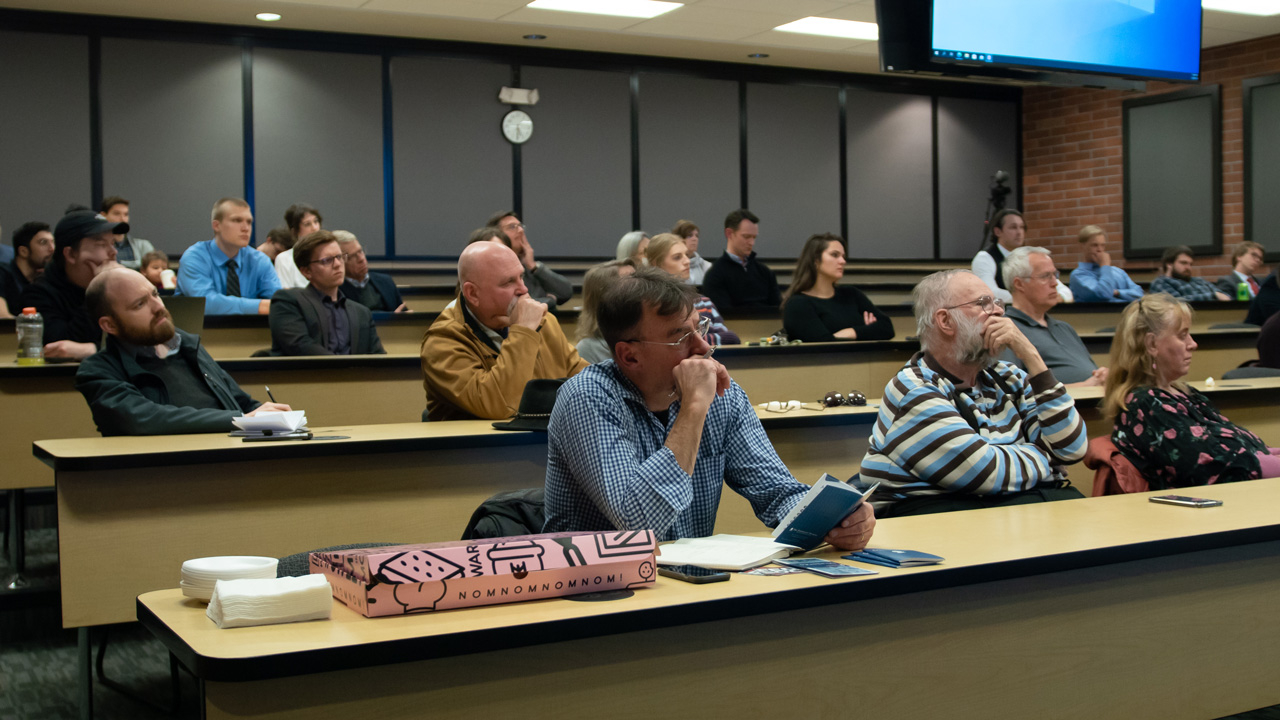
Back to blog
Education
April 5, 2023
Federal Judge, ‘Praying Coach,’ and the Rise of Religious Freedom
Religious freedom in America is on the rise. Last year, the US Supreme Court ruled in favor of Joe Kennedy, the “Praying Football Coach,” and he was recently reinstated as school coach for Bremerton High School. The coach also won a $1.7 million settlement with the school.
Last week, Federal Judge Ryan Nelson of the Ninth Circuit Court gave a public lecture discussing the importance of this ruling. He spoke at an event co-sponsored by the Hale Institute of New Saint Andrews College. The Ninth Circuit Court is the last step before an appeal goes to the U.S. Supreme Court. In his lecture, Judge Nelson argued that the Supreme Court overturned previous precedent from 1971 and is working to realign itself with the original understanding of the US Constitution.
Coach Joe Kennedy would pray on the 50-yard line after each football game. Kennedy held that this was a way of honoring God. This has been his practice since 2008. Over time, some players and others would ask to join him in this short prayer. The school became aware of this practice in 2015 and asked Kennedy to stop. Kennedy attempted to comply in various ways, such as asking players not to join him anymore, but he insisted that he would still pray by himself since this was his right. The school suspended him for this action. Kennedy then sued the school district for violating his First Amendment rights.

Judge Nelson, in his lecture this past week, emphasized that this ruling in favor of the “praying coach” shows that the Establishment clause of the First Amendment does not contradict the other clauses, such as the Free Speech clause.
Nelson went on to say that an originalist understanding of the US Constitution shows that religious practices were not prohibited in the public square: “The historical record shows conclusively that allowing religion in the public square was never understood to be a religious establishment.” He pointed to two clear examples of the government itself at the beginning of the US Constitution setting up religious practices which do not violate the Establishment clause. For example, President George Washington prayed to God and the US Congress passed legislation providing paid chaplains for the House and the Senate.

This Supreme Court ruling in favor of the “praying coach” means that the court once again recognizes that religious freedom practiced by government employees does not violate the Establishment clause. Rather, religious freedom should be protected for all government employees.
Judge Nelson in his lecture encouraged the audience that this Supreme Court ruling is an important watershed moment. Religious freedom is being defended by the highest court in America. Coaches, teachers, and other employees in government schools should be inspired by Coach Kennedy and the Supreme Court ruling.
We are grateful to The Hale Institute for putting on this event along with the Idaho Lawyers Chapter of the Federalist Society